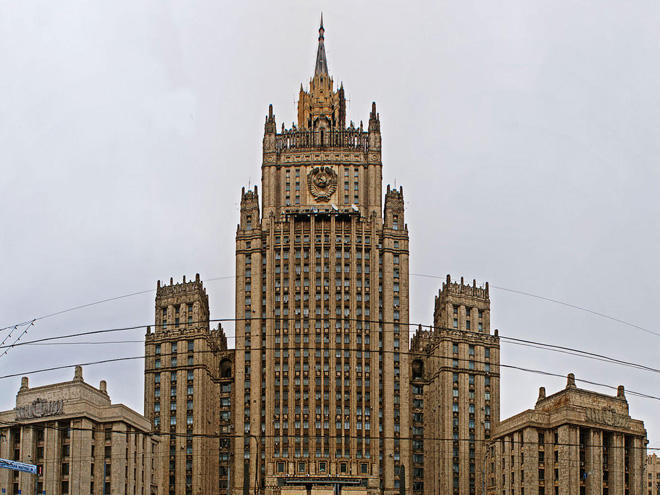Balkan Insight (20 September 2018)
Europe's Commissioner for Migration, Home Affairs and Citizenship, Dimitris Avramopoulos, and Serbia's Interior Minister, Nebojsa Stefanovic, on Thursday initialed an agreement on cooperation between Serbia and Frontex, the European Border and Coast Guard Agency.
"Cooperation with the Serbian government contributes to achieving other goals with EU support," Avramopoulos said in Belgrade, according to Beta news agency.
He said the agreement would enable Frontext to conduct checks on migrants at the border in cooperation with the Serbian Interior Ministry, Serbian media reported.
The agreement will be sent to the Serbian parliament for ratification.
Earlier on Thursday, Serbia’s Commissioner for Refugees, Vladimir Cucic, told TV Prva that Frontex was already present on the Serbian border with Bulgaria and Macedonia.
The border and coast guard agency helps EU countries and Schengen-associated countries to manage their external borders and harmonise border controls across the EU.
Non-EU countries cannot become full members.
However, a so-called status agreement may be concluded between the EU and a third country. This is when it is envisaged that Frontex’s teams will be deployed to a third country in actions where the team members will have executive powers, or where other actions in third countries require it.
A status agreement has to be endorsed by all 28 EU members before coming into force.
Montenegro has also said it wants a status agreement with the EU agency to help curb migration.
Bosnian Security Minister Dragan Mektic said in June that they would "see if it is possible for us from the Western Balkans" to become part of Frontex.
The International Organisation for Migration, the UN migration agency, warned on June 1 that migration flows through the Western Balkans are on the rise.
From January to the end of May, authorities in Bosnia, Montenegro and Albania registered more than 6,700 new migrants and asylum-seekers, more than twice the 2,600 migrants and asylum-seekers registered in the three countries over the whole of 2017.
Local media reports say the migrants and refugees crossing the Balkans come mainly from Syria, Pakistan, Afghanistan, Algeria, Libya, Morocco, Palestine and Iraq.
http://www.balkaninsight.com/en/article/serbia-eu-initial-an-agreement-on-border-protection-09-20-2018
No comments yet.
- POLAND AVOIDS NEW EU LAWSUIT IN EXTREMIS Europe - EU 20.09.2018
-
 RUSSIAN FOREIGN MINISTRY REACTS TO ARMENIA'S DECLARING CONDITIONAL WAR ON AZERBAIJAN
The Caucasus and Turkish-Armenian Relations
20.09.2018
RUSSIAN FOREIGN MINISTRY REACTS TO ARMENIA'S DECLARING CONDITIONAL WAR ON AZERBAIJAN
The Caucasus and Turkish-Armenian Relations
20.09.2018
- FRONTEX TO HELP SERBIA MANAGE MIGRANT CHALLENGE The Balkans 20.09.2018
-
 MILLIONS OF SHI'ITES EXPRESS SUFFERING IN ASHURA RITUAL IN IRAQ
Iraq
20.09.2018
MILLIONS OF SHI'ITES EXPRESS SUFFERING IN ASHURA RITUAL IN IRAQ
Iraq
20.09.2018
- ARMENIAN CHURCH HOPES FOR OVERCOMING OF CONTENTIONS AROUND UKRAINIAN CHURCH The Caucasus and Turkish-Armenian Relations 20.09.2018
-
25.01.2016
THE ARMENIAN QUESTION - BASIC KNOWLEDGE AND DOCUMENTATION -
12.06.2024
THE TRUTH WILL OUT -
27.03.2023
RADİKAL ERMENİ UNSURLARCA GERÇEKLEŞTİRİLEN MEZALİMLER VE VANDALİZM -
17.03.2023
PATRIOTISM PERVERTED -
23.02.2023
MEN ARE LIKE THAT -
03.02.2023
BAKÜ-TİFLİS-CEYHAN BORU HATTININ YAŞANAN TARİHİ -
16.12.2022
INTERNATIONAL SCHOLARS ON THE EVENTS OF 1915 -
07.12.2022
FAKE PHOTOS AND THE ARMENIAN PROPAGANDA -
07.12.2022
ERMENİ PROPAGANDASI VE SAHTE RESİMLER -
01.01.2022
A Letter From Japan - Strategically Mum: The Silence of the Armenians -
01.01.2022
Japonya'dan Bir Mektup - Stratejik Suskunluk: Ermenilerin Sessizliği -
03.06.2020
Anastas Mikoyan: Confessions of an Armenian Bolshevik -
08.04.2020
Sovyet Sonrası Ukrayna’da Devlet, Toplum ve Siyaset - Değişen Dinamikler, Dönüşen Kimlikler -
12.06.2018
Ermeni Sorunuyla İlgili İngiliz Belgeleri (1912-1923) - British Documents on Armenian Question (1912-1923) -
02.12.2016
Turkish-Russian Academics: A Historical Study on the Caucasus -
01.07.2016
Gürcistan'daki Müslüman Topluluklar: Azınlık Hakları, Kimlik, Siyaset -
10.03.2016
Armenian Diaspora: Diaspora, State and the Imagination of the Republic of Armenia -
24.01.2016
ERMENİ SORUNU - TEMEL BİLGİ VE BELGELER (2. BASKI)
-
AVİM Conference Hall 24.01.2023
CONFERENCE TITLED “HUNGARY’S PERSPECTIVES ON THE TURKIC WORLD"









